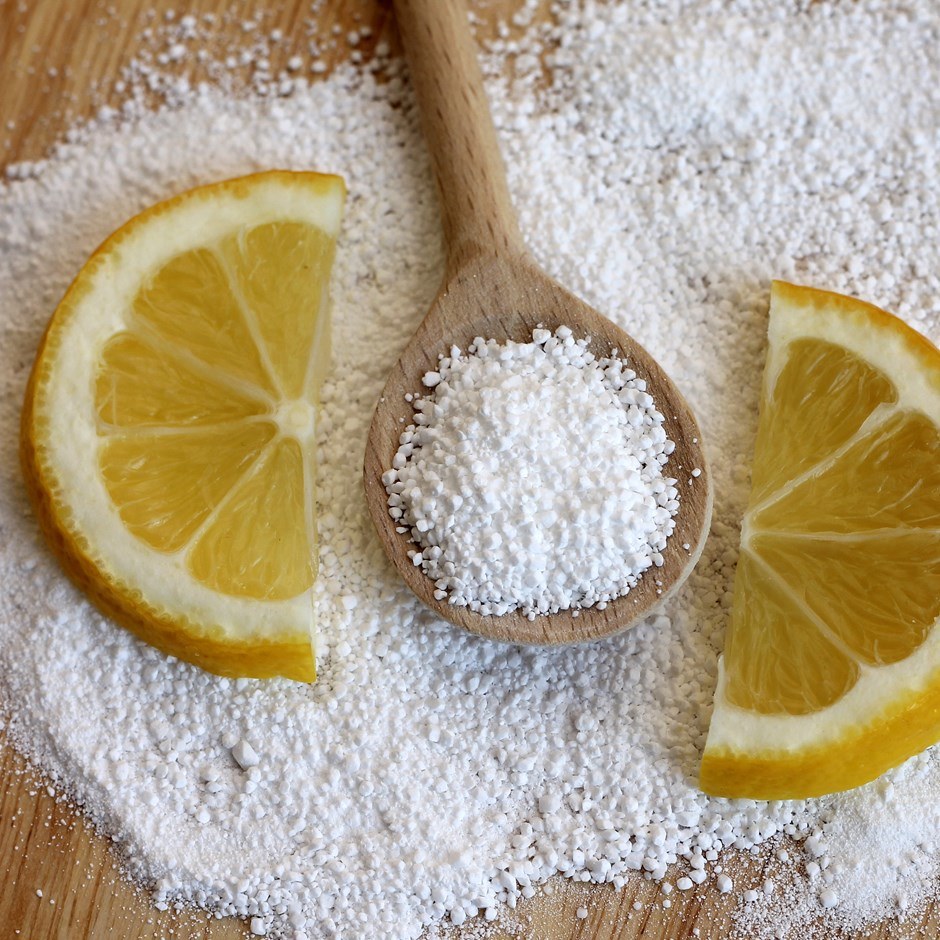Citric acid is a organic acid found in citrus fruits.
It is a natural preservative and is also used to add an acidic (sour) taste to foods and soft drinks. It also serves as an environmentally benign cleaning agent and acts as an antioxidant.
It is important as an intermediate in the citric acid cycle and therefore occurs in the metabolism of almost all living things.
Citric acid exists in a variety of fruits and vegetables mostly concentrated in lemons and limes, where it can comprise as much as 8 percent of the dry weight of the fruit.
Applications:
- Food and drink
- Cleaning and chelating agent
- Cosmetics, pharmaceuticals, dietary supplements, and foods
- Other Uses:
- Citric acid is used as an odourless alternative to white vinegar for home dyeing with acid dyes.
- Citric acid can be used as an alternative to nitric acid in passivation of stainless steel.
- Citric acid can be used as a lower-odour stop bath as part of the process for developing photographic film.
- Photographic developers are alkaline, so a mild acid is used to neutralize and stop their action quickly, but commonly used acetic acid leaves a strong vinegar odour in the darkroom.
- Citric acid/potassium-sodium citrate can be used as a blood acid regulator
